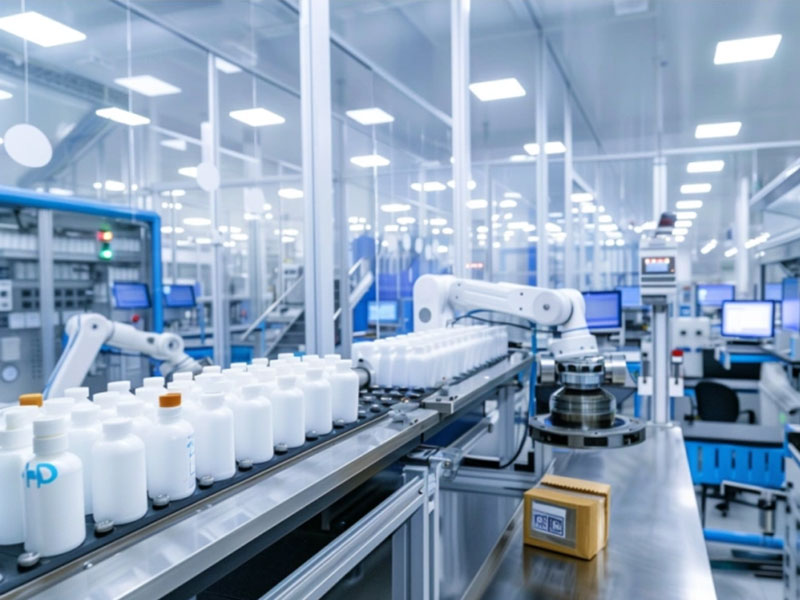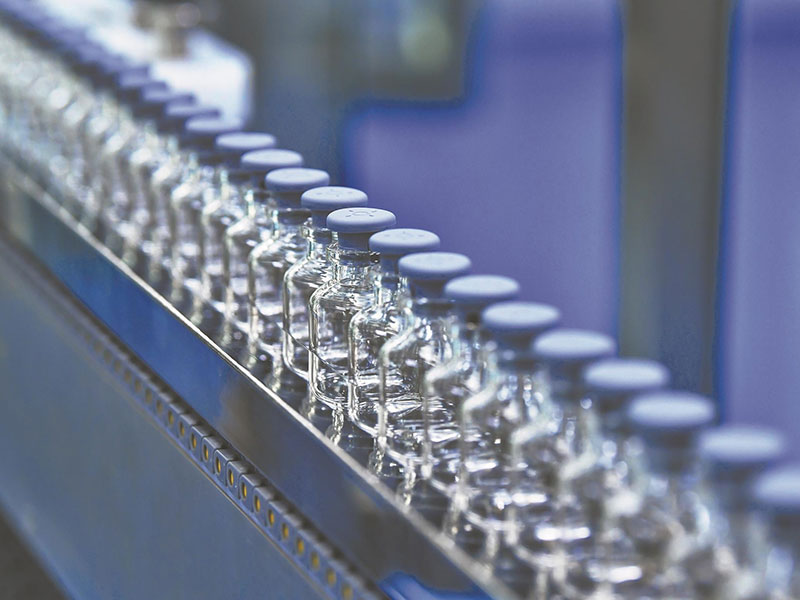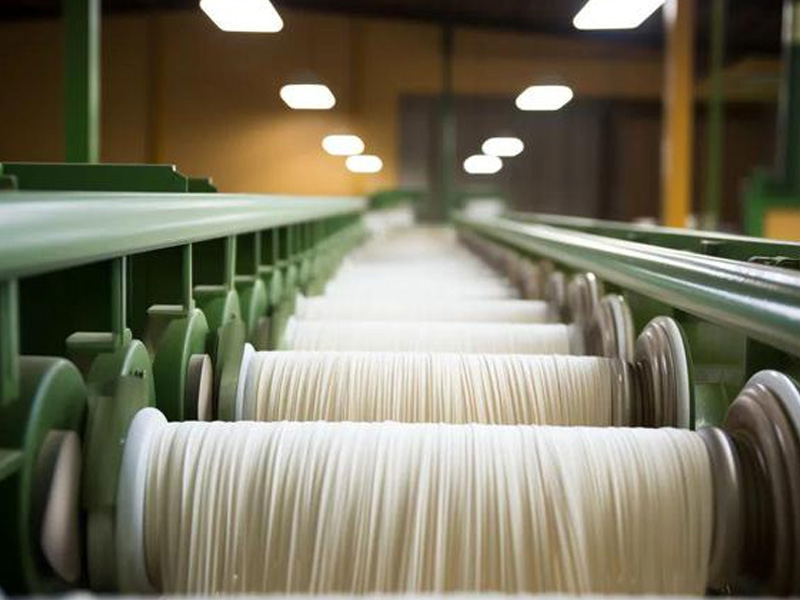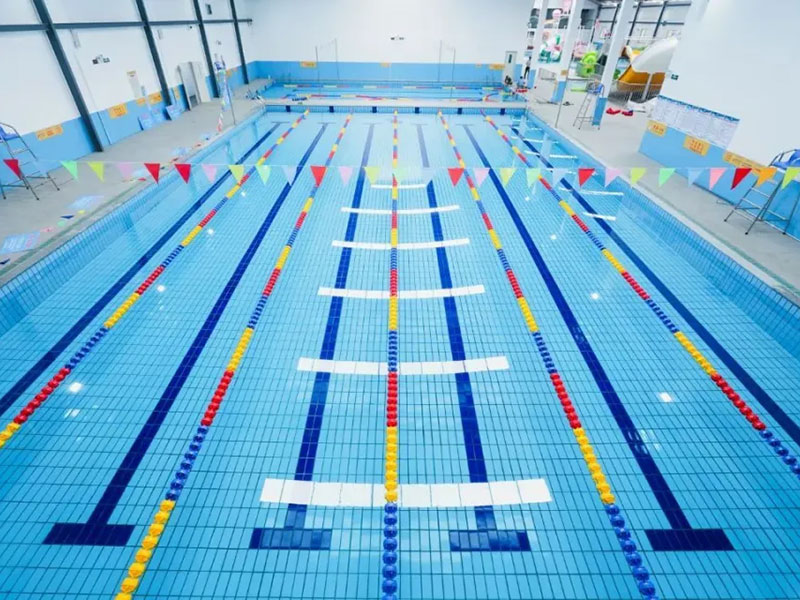Pharmaceutical Industry
In the pharmaceutical production process, rotary dehumidifiers are used to control the humidity of the production environment to ensure the quality and stability of the drugs.


In pharmaceutical production, the use of rotary dehumidifiers is crucial for the following reasons:
- Prevent moisture from affecting drugs.
- Drug quality: Drugs are very sensitive to humidity in the air. Excessive humidity can cause drugs to absorb moisture and deteriorate, affecting their efficacy or even losing their efficacy. For example, Chinese medicines absorb moisture from the air in a humid environment, resulting in increased water content, affecting their efficacy, and even making them unusable. Western medicines are prone to discoloration, caking, deformation, and other phenomena, which can also lead to reduced efficacy and microbial growth.
- Equipment maintenance: High-humidity environments can also cause corrosion on the equipment surface, increase maintenance costs, and reduce production efficiency.
- Advantages of rotary dehumidifiers
- High-efficiency dehumidification capacity: The rotary dehumidifier can quickly reduce the humidity in the workshop to the set target value to ensure the dryness of the drug production environment.
- Precise humidity control: The rotary dehumidifier can adjust the humidity according to actual needs, and keep the humidity in the workshop within an appropriate range through precise control of the control system.
- Energy saving and environmental protection: The rotary dehumidifier adopts advanced energy recovery technology, which can recycle the heat energy in the discharged moisture, reduce energy consumption, and reduce the impact on the environment.
- Reliable operation and automatic control: The rotary dehumidifier has reliable operation and automatic control functions, can monitor humidity and temperature changes, and adjustments, reduce the risk of manual intervention and operating errors, and improve the stability and reliability of work.
- Specific application scenarios
- Drug production workshop: Rotary dehumidifiers are widely used in drug production workshops to ensure the quality and stability of drugs. For example, a special room (temperature: 22±2℃, humidity 20%±5%, cleanliness: 100,000 grade) required by the process in a pharmaceutical company's production line uses a rotary dehumidifier to ensure that the humidity and temperature in the workshop meet the requirements by mixing new return air.
- Drug storage warehouse: The rotary dehumidifier can effectively control the humidity in the warehouse to prevent drugs from getting damp and deteriorating. For example, in the fresh air dehumidification project of Shenzhen Sinopharm Zhijun Group, a combined rotary dehumidifier is installed in the fresh air section of the air conditioning system to dehumidify and dry the high-temperature and high-humidity air and cool it down before sending it to the return air mixing section of the air conditioning system. After mixing with the return air, the relative humidity will be controlled within 40%, ensuring the quality of the finished pharmaceutical products in the room.
- Laboratory: The rotary dehumidifier can provide a dry environment for the laboratory to ensure the accuracy of the experimental results.
In the pharmaceutical workshop, humidity control is very important because humidity affects the quality, stability and growth of microorganisms of the drugs. According to different cleanliness levels and production process requirements, the humidity of the pharmaceutical workshop should be controlled within the following range:
1. Humidity control standard of clean area
- Pharmaceutical clean room with air cleanliness levels A, B, and C: The temperature should be 20℃~24℃, and the relative humidity should be 45%~60%.
- Pharmaceutical clean room with air cleanliness level D: The temperature should be 18℃~26℃, and the relative humidity should be 45%~65%.
- Personnel purification and living room: The temperature in winter should be 16℃~20℃, and the temperature in summer should be 26℃~30℃.
2. Humidity requirements for different types of drugs
- Hygroscopic drugs: The relative humidity requirement is 45%~50%RH (in summer).
- Solid preparations such as tablets: The relative humidity requirement is 50%~55%RH.
- Injection water and oral solution: The relative humidity requirement is 55%~65%RH.
3. Other related requirements
- Constant humidity: The humidity of the pharmaceutical factory is required to remain stable without drastic fluctuations. Fluctuating humidity may cause the drugs to become damp, deteriorate or become ineffective.
- Humidity control equipment: Pharmaceutical factories must be equipped with humidity control equipment, such as humidifiers and dehumidifiers, to keep the humidity within the appropriate range.
- Monitoring system: The humidity of the pharmaceutical factory needs to be monitored in real-time , and there should be a corresponding alarm mechanism. When the humidity exceeds the specified range, timely measures should be taken to adjust it to avoid adverse effects on the quality of the drugs.
- Drug storage area: Drugs should be stored in a specific area that meets humidity requirements to ensure the quality and stability of the drugs.
4. Specific application scenarios
- GMP clean workshop: The clean area is generally controlled at 20-24℃ and the relative humidity is 45%-60%. Production workshops and auxiliary workshops with certain cleanliness requirements are generally controlled at 18-28℃ and the relative humidity is 50%-65%.
- Biopharmaceutical dust-free workshop: Within the temperature and humidity control range of the constant temperature and humidity machine, the relative humidity requirement for hygroscopic drugs is 45% - 50%RH (in summer), the relative humidity requirement for solid preparations such as tablets is 50% - 55%RH and the relative humidity for injection water and oral liquid is 55% - 65%.








